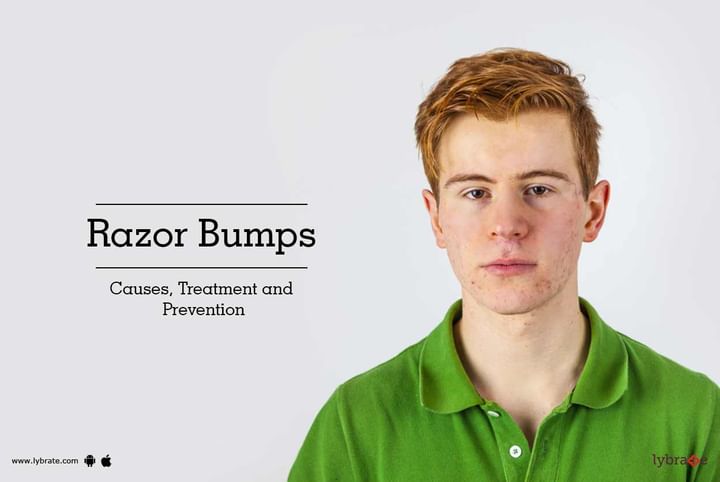Razor Bumps - Causes, Treatment and Prevention
What is Razor Bump (Pseudofolliculitis Barbae)?
It is an inflammatory reaction to the hair shaft entering the skin, most common in blacks who shave regularly.
Who gets razor bumps?
About 50% of black males are said to be affected. Other races can also be affected. Though the condition is most commonly reported in men, women who remove unwanted hair also suffer from this condition.
Causes of Razor Bumps-
The condition is caused by both genetic factors and various hair removal methods.
Genetic factors:
- Curved hair follicles and curly hair
- A defect in the gene for the hair protein keratin 6hf
Hair removal methods may cause razor bumps by either creating a sharp hair tip that re-enters the skin away from the hair pore (extrafollicular penetration) or by the hair shaft breaking off at different lengths and piercing the follicle from within the skin (transfollicular penetration). An inflammatory reaction is then set up in response to the hair fragments lying in the skin. The following methods may cause razor bumps:
- Shaving
- Tweezing
- Waxing
- Electrolysis
Symptoms-
- Ingrown hairs
- Red, skin coloured or dark bumps
- Bumps containing pus
What are the complications of razor bumps?
- Pigmentary problems (darkening of the area most common)
- Scarring
- Abscess formation
- Psychological problems
Razor bumps are most common on the beard, however they have been reported to occur on the pubic area, legs and scalp.
The Treatment-
There are several treatment options to deal with razor bumps already present. They include:
- Moisturizers
- Retinoids
- Steroids
- Antibiotics
- Alpha-hydroxy acids
- Chemical peels
- Microdermabrasion
Prevention of Razor Bumps:
It is true to say that 'prevention is better than cure'. Here are the preventions-
- Laser hair removal is the best method of removing unwanted hair in individuals affected with this condition. The laser device is programmed to selectively target the pigment in the hair follicle, destroying it, while leaving the skin intact.
- Electrical clippers are found by many to cause less bumps than razors. If one must shave it is important to avoid a close shave to help prevent razor bumps. The following is a guide to safer shaving methods:
- Brush hairs with polyester sponge before shaving.
- Wash beard, use pre-shave cream or gel.
- Avoid double and triple blade razors.
- Shave in the direction of hair growth.
- Do not pull the skin taut.
- Use a sharp blade, rinse after each stroke.
- Apply a cold compress after shaving, then a soothing aftershave preparation.
- Clipping hairs with a small pair of facial scissors is an option for women with few unwanted hairs.
- Chemical depilatories (hair removal creams) are another option for hair removal.
- Electrolysis is a permanent method of hair removal but requires several sessions. It is operator dependent and can cause bumps and scarring. Waxing and tweezing also have the potential to cause bumps.
- Eflornithine hydrochloride is a cream that slows the growth of hair and therefore can be used in combination with a hair removal method. It is marketed for women with unwanted facial hair.
- Anti-androgen drugs can be used in females who have hirsutism (male pattern hair growth e.g. beard hairs)



+1.svg)
